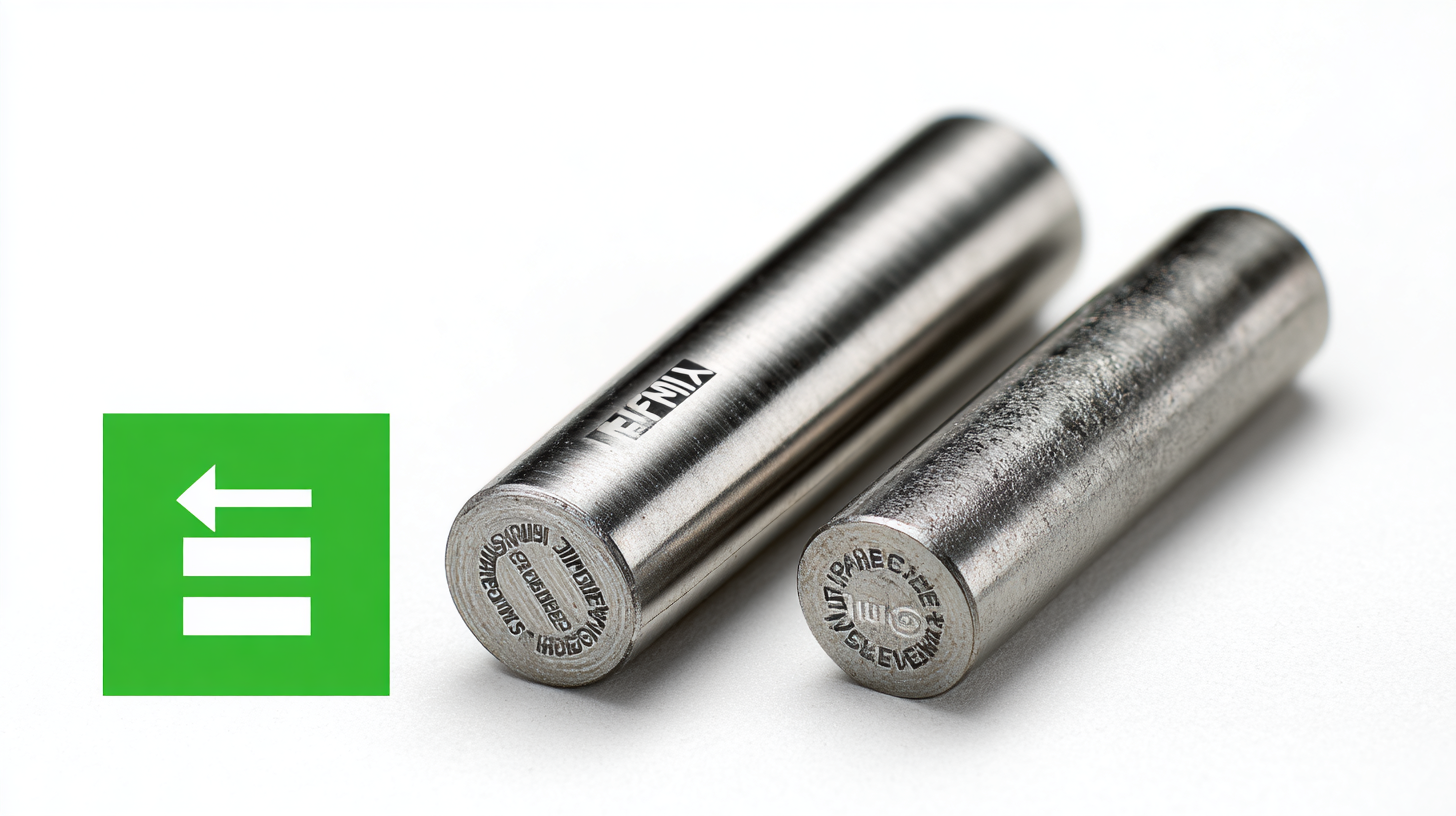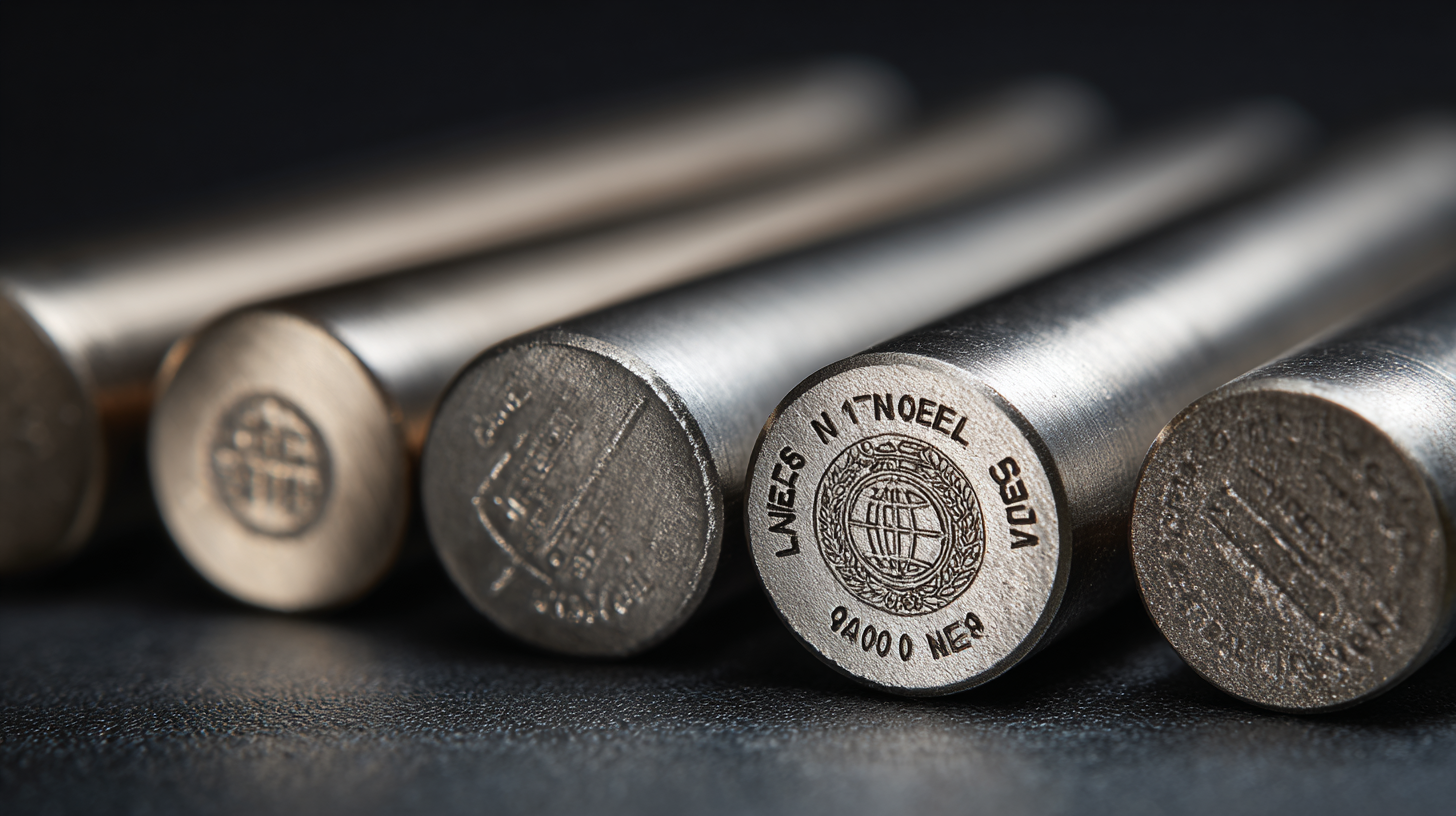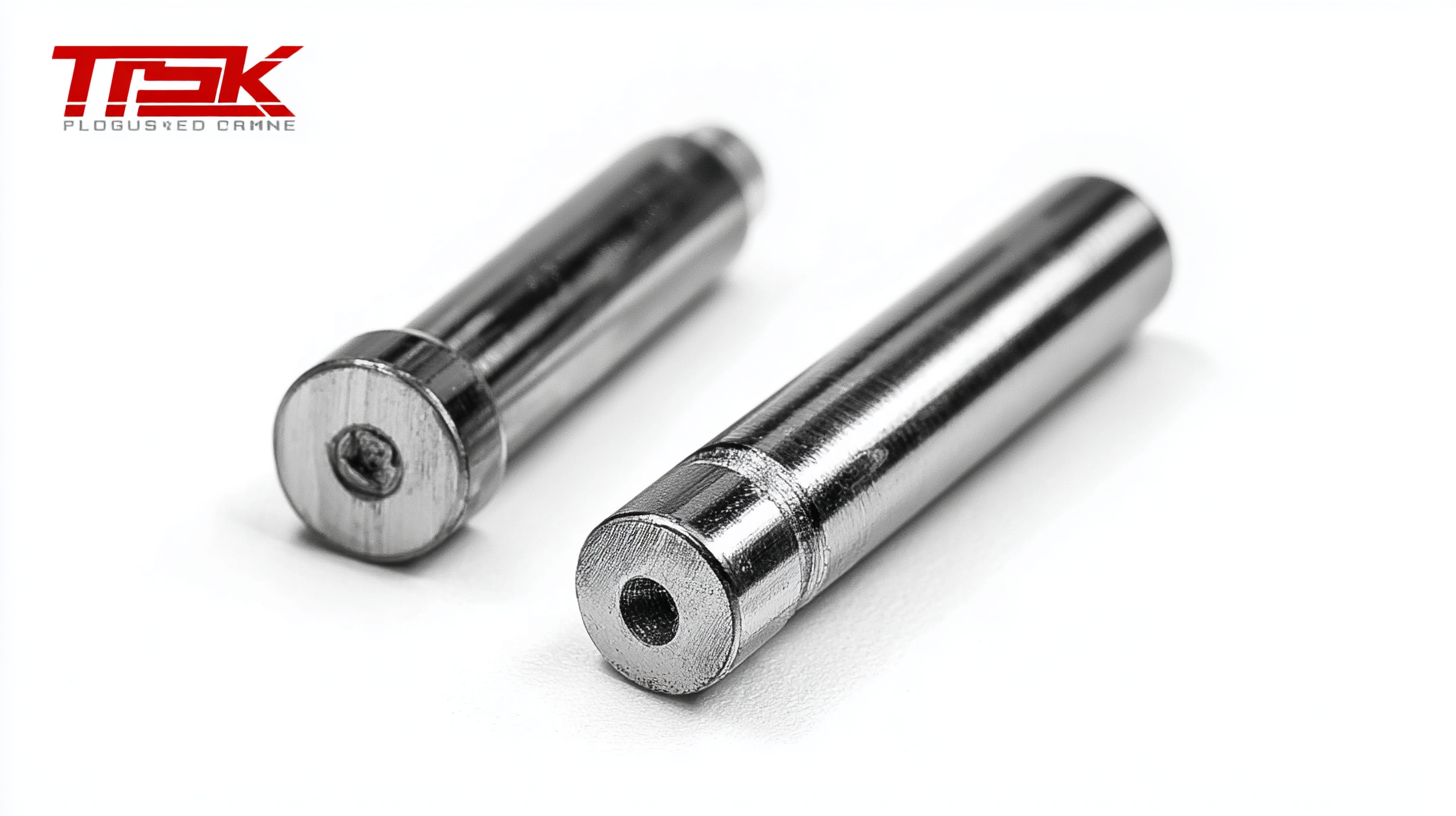


In the rapidly evolving landscape of manufacturing, stainless steel dowel pins play a crucial role across various applications, from automotive to aerospace. According to a recent report by MarketsandMarkets, the global stainless steel market is projected to reach USD 200 billion by 2026, driven by the increasing demand for high-strength materials in industrial applications. Navigating the complex maze of import-export certifications for stainless steel dowel pins is essential for manufacturers seeking to maintain compliance and competitive advantage. These certifications not only ensure product quality and safety but also facilitate smoother international transactions. As regulatory standards tighten and the global market expands, understanding these certification requirements becomes imperative for any business involved in the import and export of stainless steel dowel pins. This blog aims to illuminate the industry production standards and provide valuable insights into the critical certification processes involved.

Understanding import-export certifications for stainless steel dowel pins is crucial for businesses looking to succeed in global markets. These certifications ensure that products meet specific safety and quality standards, which can vary significantly from one country to another. For stainless steel dowel pins, compliance might involve certifications such as ISO 9001, which focuses on quality management systems, or ASTM standards that pertain to specific material properties. By navigating these certifications effectively, companies can enhance their credibility and streamline the import-export process, reducing the risk of regulatory issues.
Additionally, obtaining the necessary certifications not only opens doors to international buyers but also provides assurance to customers regarding the reliability and safety of the products they purchase. To achieve this, businesses should engage with regulatory experts who understand both the import-export landscape and the specific requirements related to stainless steel dowel pins. Staying informed about changes in regulations and continuously improving compliance processes will ultimately lead to a stronger market position and greater customer trust.
| Certification Type | Issuing Authority | Validity Period | Required Documentation | Cost Estimation |
|---|---|---|---|---|
| ISO 9001 | International Organization for Standardization | 3 years | Quality Management System documentation | $500 - $1,500 |
| CE Marking | European Conformity | May vary by product | Technical documentation, test reports | $1,000 - $3,000 |
| RoHS Compliance | Various local authorities | Indefinite, with periodic reviews | Compliance declaration, product testing | $300 - $1,000 |
| FDA Certification | U.S. Food and Drug Administration | Indefinite, until product changes | Product registration, labeling | $2,000 - $10,000 |
| ANSI/ASME Compliance | American National Standards Institute | Varies | Compliance documentation | $500 - $2,000 |
When engaging in international trade, understanding the essential quality standards for stainless steel dowel pins is crucial for ensuring product reliability and compliance with global regulations. Different countries may have varying requirements, but common standards such as ASTM, ISO, and JIS play a significant role in defining the quality benchmarks for materials. These standards cover aspects like tensile strength, corrosion resistance, and dimensional tolerances, which are all vital for maintaining the performance and durability of dowel pins in various applications.

Moreover, packaging and labeling also adhere to specific international guidelines to guarantee that products are identifiable and traceable. Importers and exporters must familiarize themselves with these certification processes to avoid delays and ensure a smooth transaction. Having the correct certifications not only helps in building trust with customers but also enhances the overall marketability of stainless steel dowel pins. As businesses navigate these certification landscapes, investing in quality assurance measures will ultimately lead to better outcomes in both domestic and international markets.
When navigating the landscape of stainless steel dowel pin certifications, understanding the key regulatory bodies involved is crucial for manufacturers and importers. These organizations set the standards that ensure products meet safety, quality, and performance benchmarks. For stainless steel dowel pins, compliance with standards from international bodies such as ISO and ASTM is often required. Additionally, local regulatory agencies may impose specific requirements that align with regional manufacturing practices and safety protocols.
Each regulatory body may have distinct processes for certification, including testing and documentation. Familiarity with these processes is essential to avoid delays in product launch and to maintain market competitiveness. Furthermore, staying updated with ongoing changes in regulations can help manufacturers preemptively address compliance issues, ultimately ensuring their products maintain market integrity and consumer trust. Understanding these dynamics will not only facilitate smoother import-export transactions but also pave the way for future innovations within the industry.

Navigating the import-export certifications for stainless steel dowel pins requires a systematic approach. To begin, familiarize yourself with the regulations established by authorities like the FDA and USDA, which dictate that imported goods must adhere to the same stringent standards as those produced domestically. This ensures that your products are compliant and safe for the market. You should also engage with the CBP Office of Trade to stay updated on any changes in laws and regulations that may affect your certifications.
Next, follow a step-by-step checklist to secure the necessary certifications. Start by acquiring the Import Export Code (IEC), a crucial requirement for any business looking to import or export. Then, research specific certifications, such as those required for food products if your dowel pins are part of the food machinery sector. Additionally, consider utilizing available resources like start-up checklist tools that can guide you through company registration and compliance processes. This methodical approach will streamline the certification process, allowing you to focus on growing your import-export business efficiently.
Navigating certification compliance for stainless steel dowel pins can often feel daunting due to the myriad of regulations and standards imposed by different countries. One of the primary challenges manufacturers face is identifying the specific certifications required for their target market. The standards can vary significantly, including ISO certifications, ASTM standards, and even local regulations. This complexity can lead to confusion and ultimately result in delays in the import-export process.
Another common challenge is maintaining compliance throughout the production and distribution process. Companies may struggle to keep up with evolving regulations or fail to document their compliance efforts adequately. To overcome this, it's crucial to establish a robust quality management system that includes regular audits and training programs. Engaging with third-party certification bodies early in the product development process can also provide valuable insights, ensuring that manufacturers are well-prepared to meet certification requirements. By proactively addressing these challenges, businesses can streamline their path to compliance and enhance their reputation in the competitive market of stainless steel dowel pins.